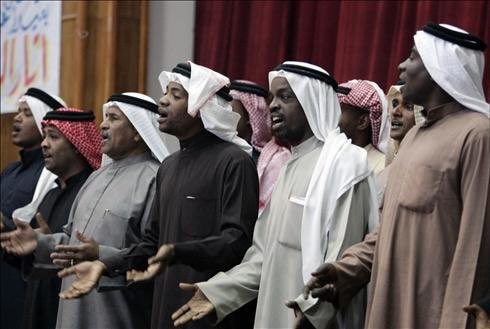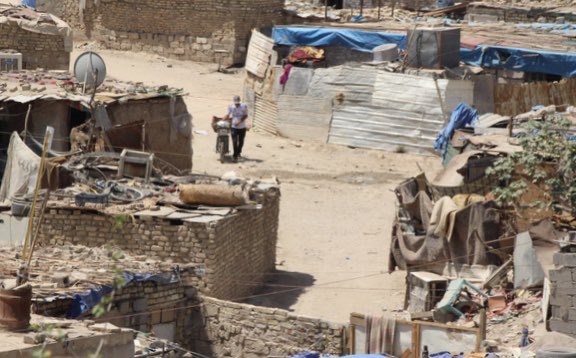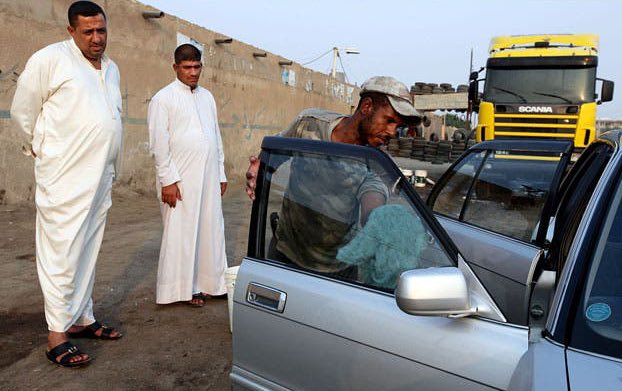The majority of Afro-Iraqis are the descendants of slaves brought to the Middle East from the Swahili Coast and other parts of southeast Africa due to the Arab-Muslim Slave Trade. Others are the descendants of sailors, merchants, and traders from Africa.
The largest population of Black Iraqis is in southern Iraq, especially Basra, where poverty and unemployment are commonplace. In addition, it is much more difficult for Black people to find work due to racism and colorism from employers and lighter Iraqis in general.
As a result, the majority of the country’s Black inhabitants live in slums and one-room mud brick houses. They have little access to clean water, adequate sewage treatment, and reliable electricity.
Slums of Al Zubayr District, Basra:
Slums of Al Zubayr District, Basra:
For many of these unemployed, they rely on unofficial jobs that don’t pay well, such as washing cars, playing music on the streets, and selling artwork.
On top of dealing with racial inequality and poverty, they also face a lack of political representation. Not a single seat in Basra’s Provincal Council is held by a Black Iraqi, despite them approximately making up a quarter of the city’s population.
After 2003, thousands of Black Iraqis began organizing and founded the Movement of Free Iraqis, led by social activist Jalal Thiyab, by 2007. While fighting for Black rights and representation, the party was neglected and didn’t gain much support from other Basrawis.
In 2013, Jalal Thiyab, who was seen as a leader by over a million Black Iraqis, was assassinated, and his murder was never officially investigated.
Today, Afro-Iraqis continue to face social discrimination and political neglect. As Iraqis, we should condemn this racism against Black Iraqis, educate our society about their history, about the injustices they face, and to stop using the word “عبيد" (slaves) to describe them.

 Read on Twitter
Read on Twitter










